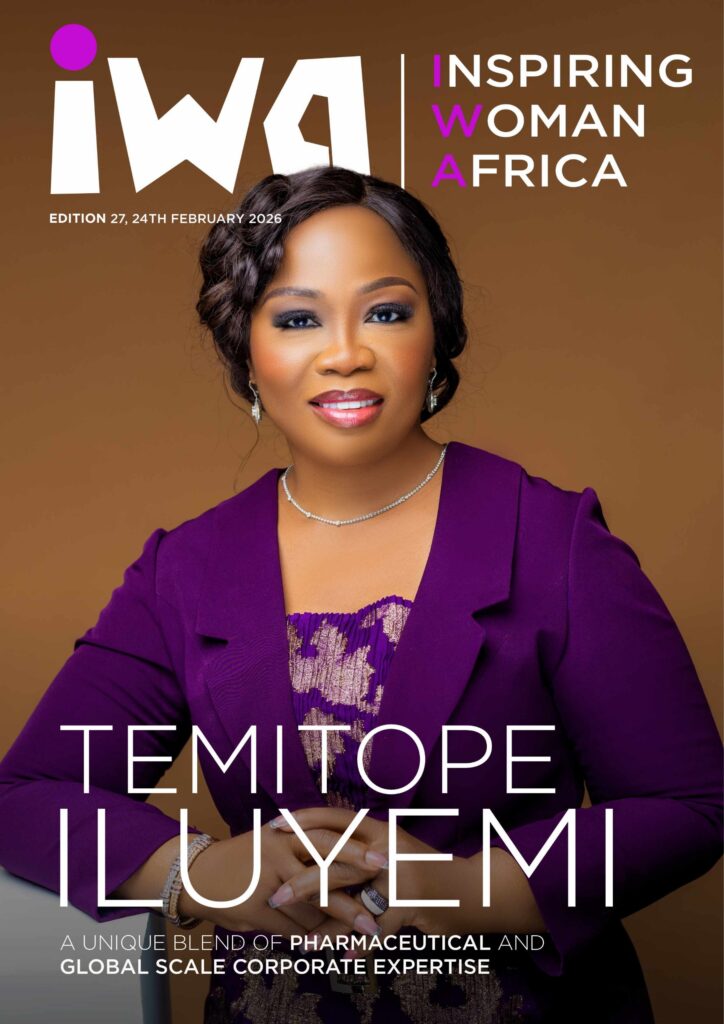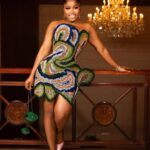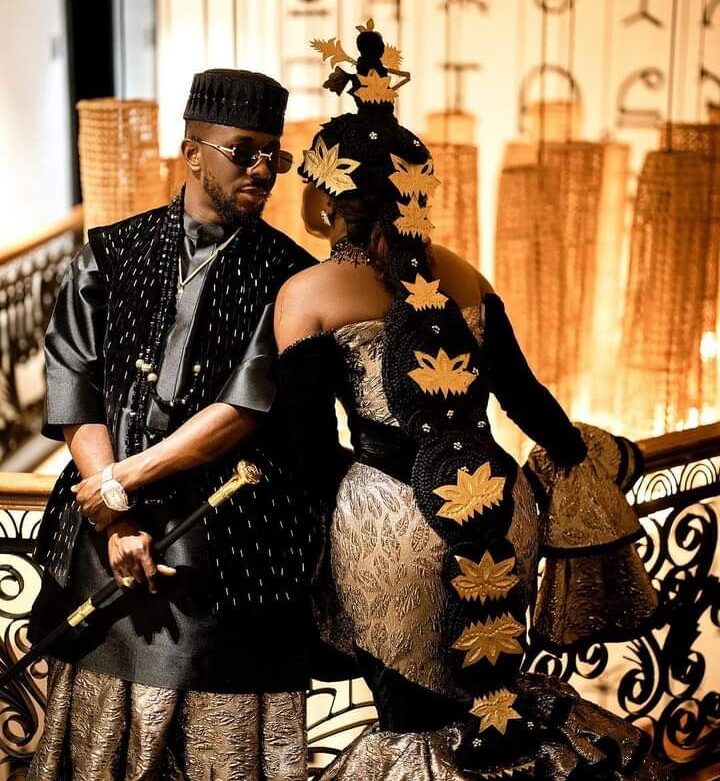
There is no stage quite as spectacular as a Nigerian wedding. It is where heritage collides with haute couture, where the intimacy of love is expressed in sweeping silhouettes, and where fashion takes on the role of storyteller. Here, the bride does not simply marry—she reigns.
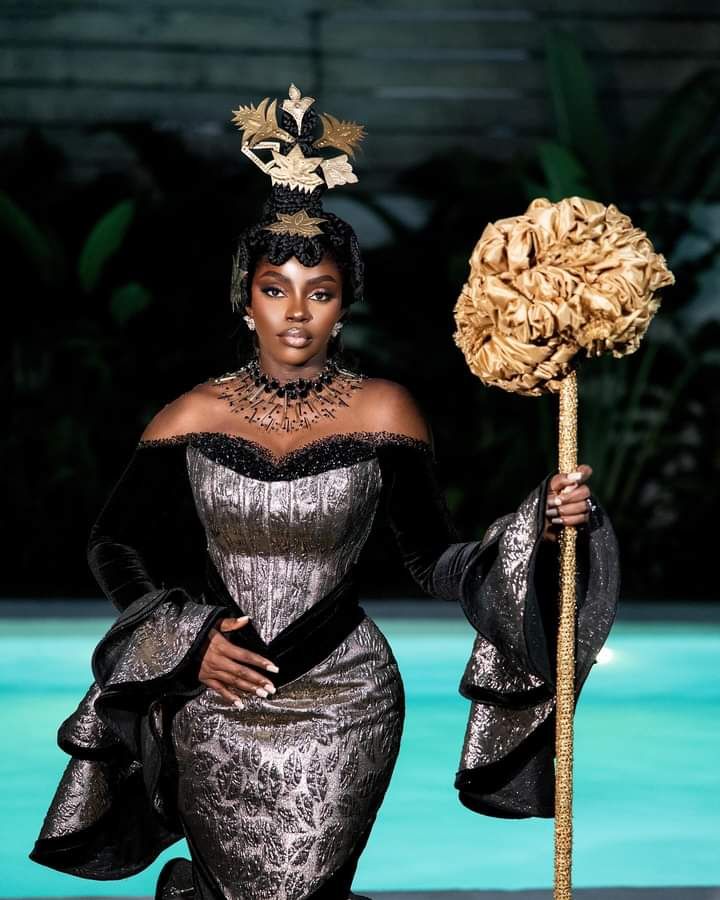
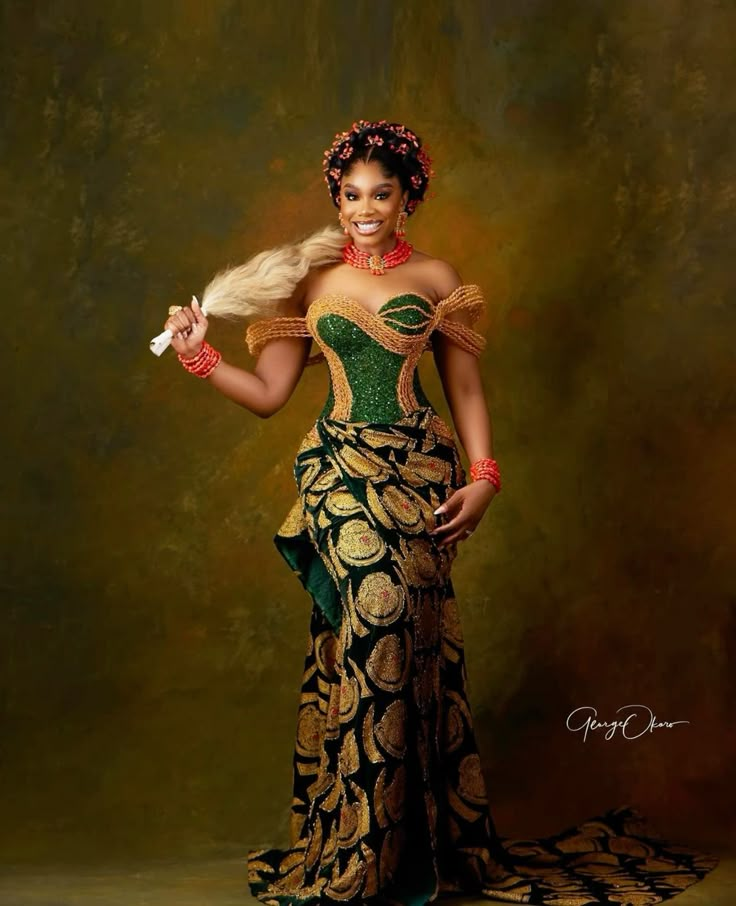
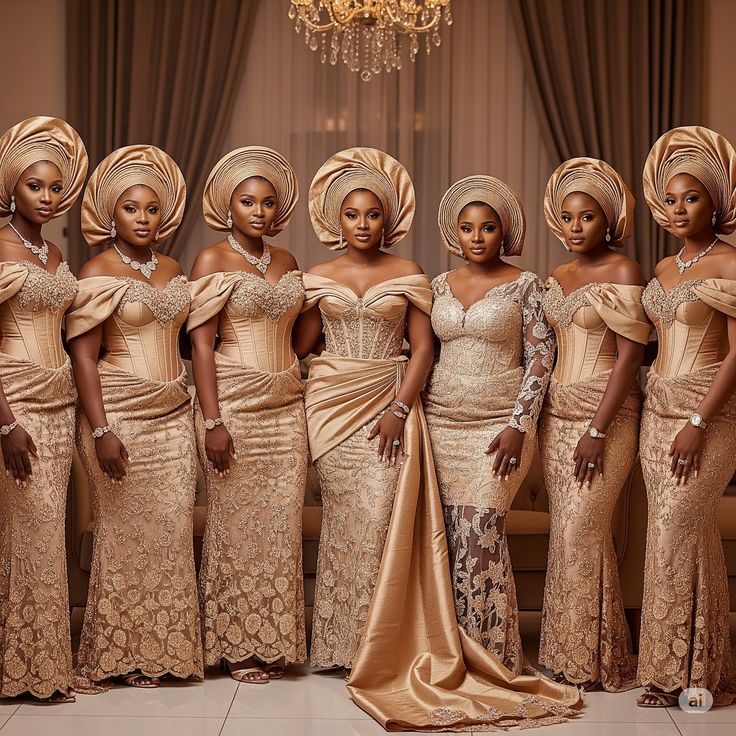
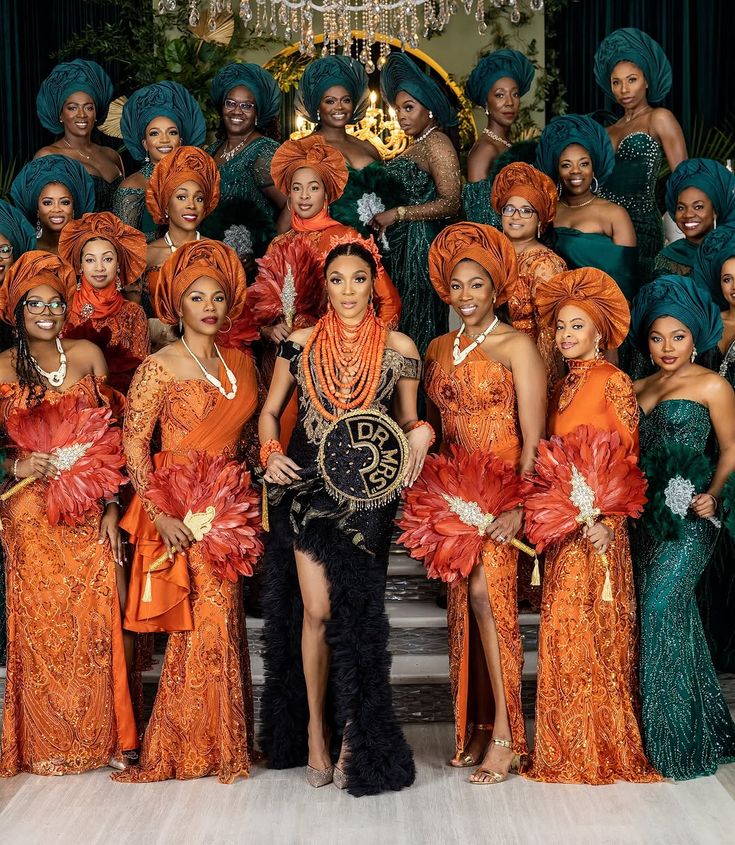
The Bride as Muse
Every fairytale has its heroine, and in Nigeria, she is a vision of extravagance. The white wedding dress is her canvas: sculptural gowns that rival Paris runways, cathedral-length trains that trail like whispered secrets, veils embroidered with crystals that shimmer like morning dew. The Nigerian bride does not merely wear a gown—she commands an entire aesthetic universe.
Then comes the metamorphosis. Tradition takes center stage as she emerges in aso-oke, lace, or George fabrics reimagined with architectural precision. Think structured blouses with couture-level draping, wrappers tied with sculptural mastery, and geles towering like regal crowns. This is not mere fashion—it is ancestry reborn in modern glamour.
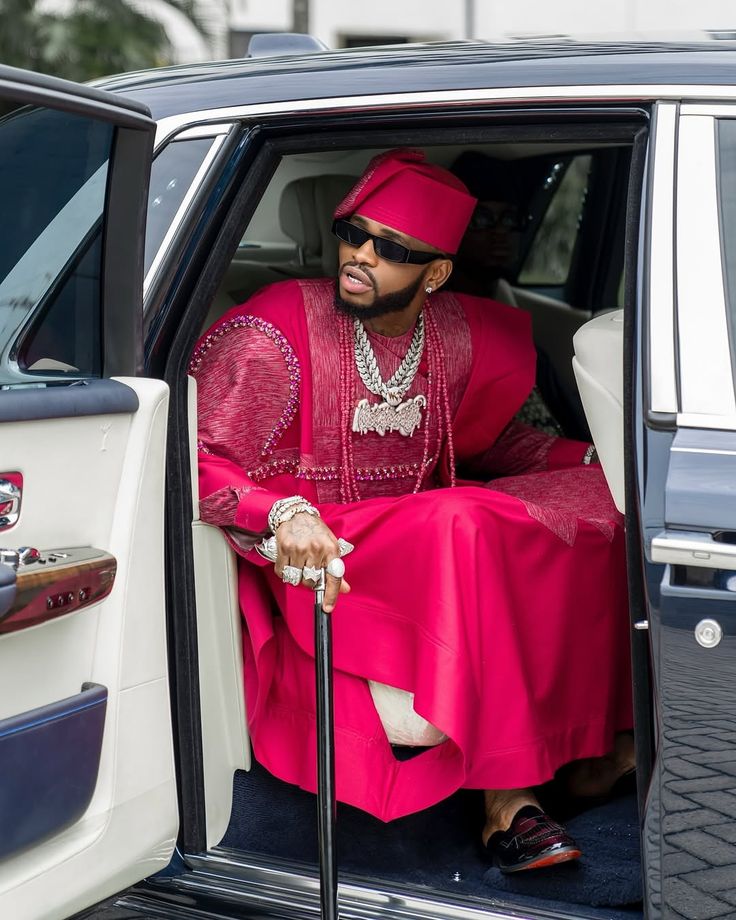
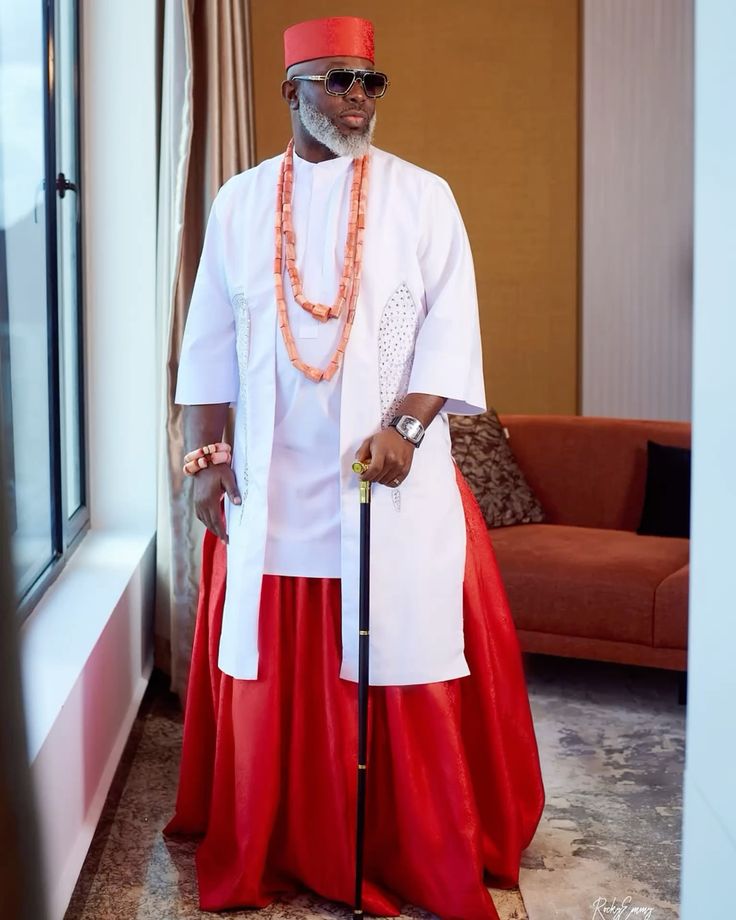
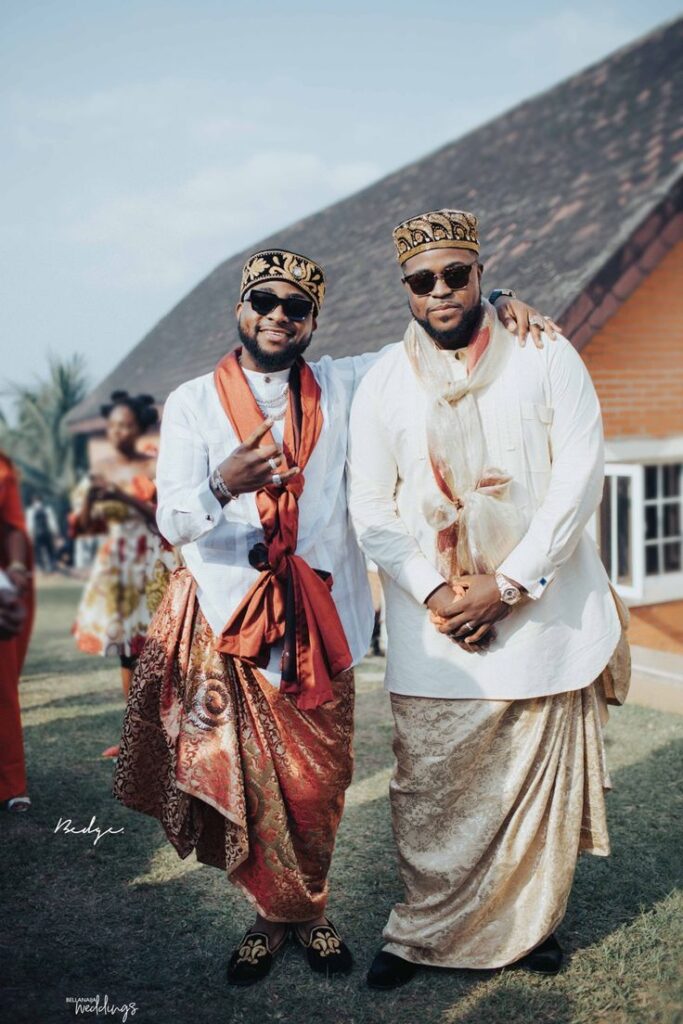
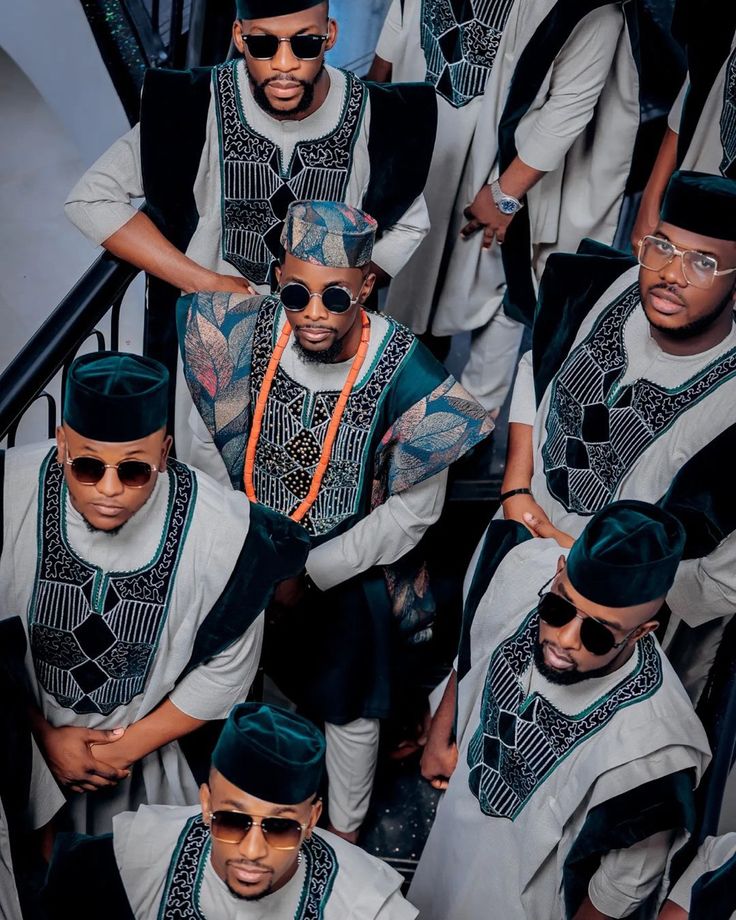
The Groom, Reimagined
The modern Nigerian groom is no longer an accessory to the spectacle—he is part of it. Bespoke tuxedos in rich velvets, agbadas cut with sharp tailoring, embroidery threaded like poetry. His fashion moment is deliberate, a counterpoint to the bride’s drama, creating a dialogue of silhouettes that feel like destiny stitched in fabric.
The Power of Aso-Ebi
And then, the entourage. In Nigeria, the bridal party and aso-ebi guests form a living runway. Uniform fabrics are transformed into countless personal statements—daring cut-outs, voluminous sleeves, daring hemlines. The room becomes a kaleidoscope of artistry, a testament to individuality within unity. The wedding, in essence, becomes the ultimate fashion week—except the applause is in ululations, the flashbulbs are from family cameras, and the runway is the dance floor.

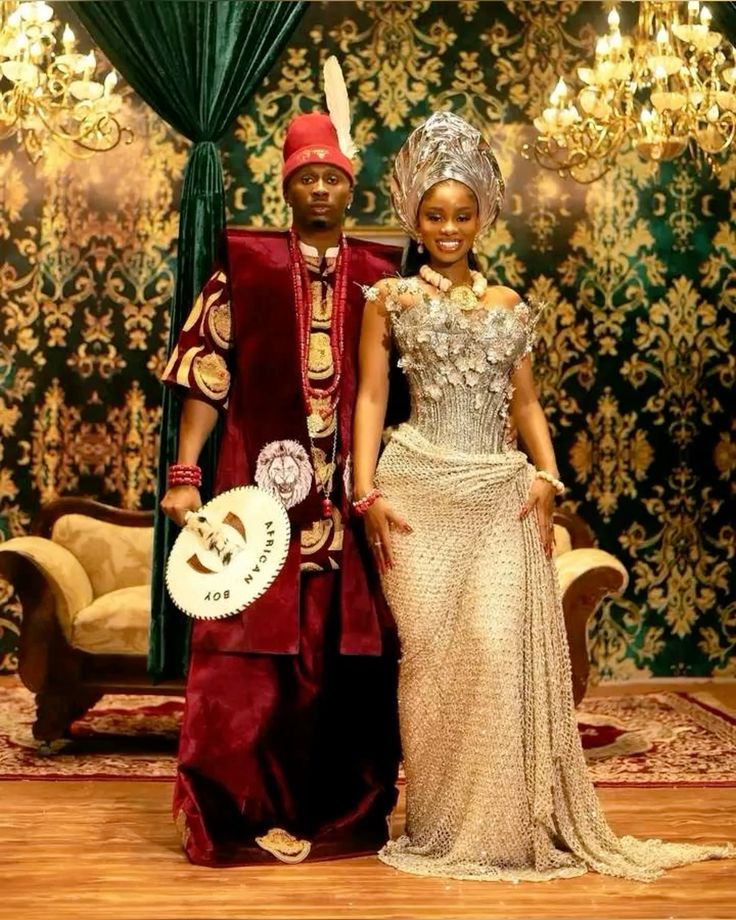
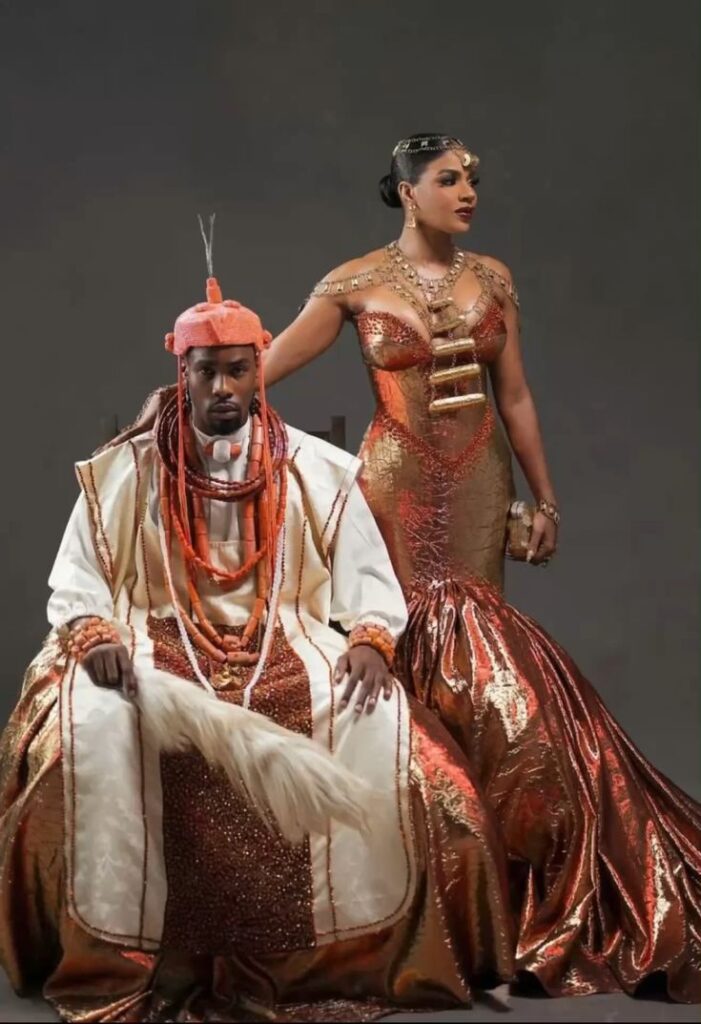
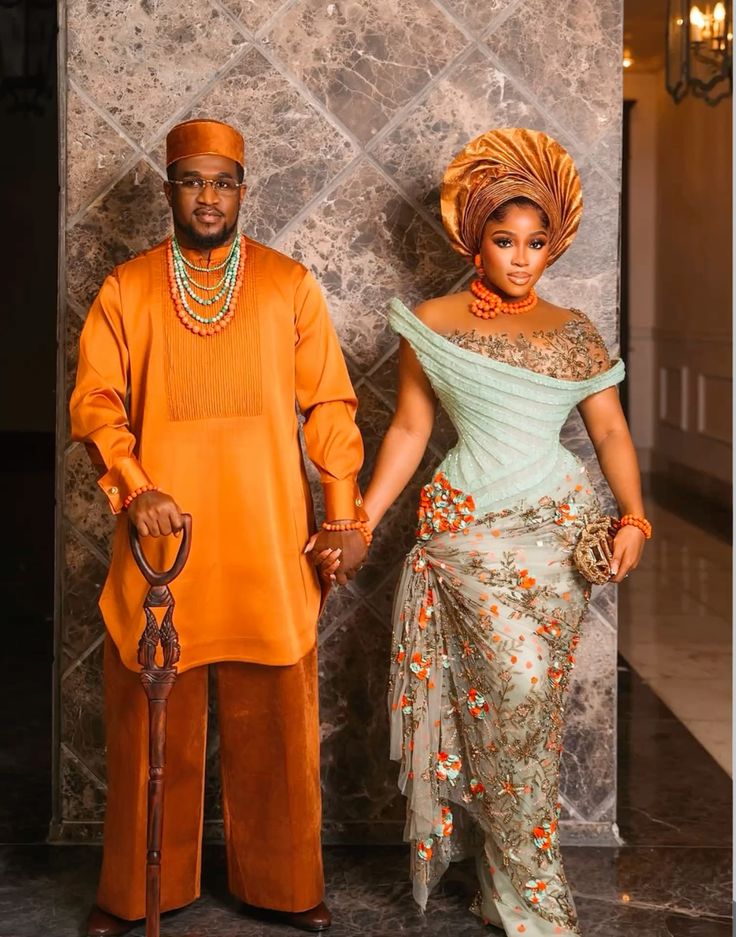
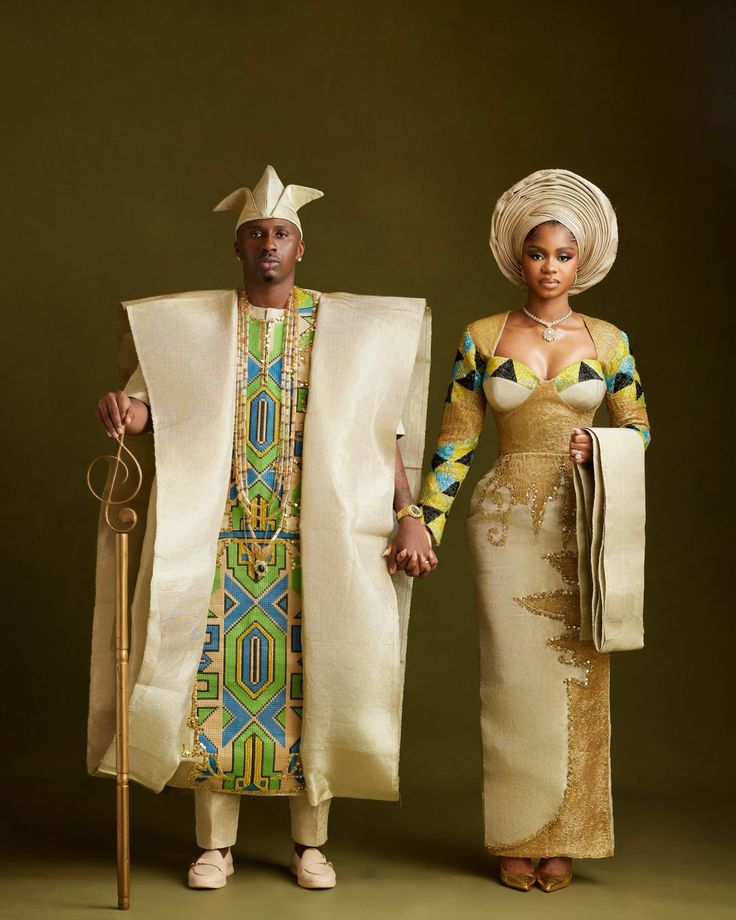
Fashion as Legacy
But beyond the glamour, Nigerian wedding fashion carries a deeper resonance. Every outfit is layered with meaning: lace as a symbol of affluence, aso-oke as an heirloom of culture, beadwork as a nod to ancestry. This is fashion as legacy, couture as heritage. The clothes are not simply worn; they are lived, inherited, and remembered.
The Fairytale
A Nigerian wedding is more than an event—it is a fashion epic, a cinematic unfolding of style and tradition where every detail is curated to perfection. It is a bride who becomes muse, a groom who becomes icon, and a celebration where every guest is styled like a star.
In the end, the fairytale is not only about love. It is about the spectacle, the craft, the culture—and the enduring truth that in Nigeria, weddings are not just ceremonies. They are fashion’s most glorious stage.
Yolanda Okereke is a visionary fashion entrepreneur and respected industry leader, known for her exceptional work as a Costume Designer and Creative Producer in Film and Television. With over a decade of experience, she has consistently shaped the visual identity of some of Nollywood’s most iconic productions, earning a reputation for her artistic depth, organisational precision, and bold storytelling through costume.
Latest Posts
-
Feb 24, 2026 Busie Matsiko
-
Feb 24, 2026 Seven Money Moves to Make Today
